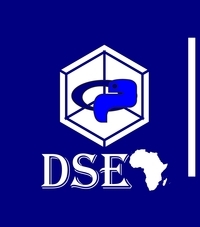
DSEA - Financial Inclusion in Africa by Data Science East Africa
This is a private hackathon open to Data Science East Africa 2020 boot camp participants. If you are not a participant and would like to participate, contact Data Science East Africa Team.
Financial Inclusion remains one of the main obstacles to economic and human development in Africa. For example, across Kenya, Rwanda, Tanzania, and Uganda only 9.1 million adults (or 13.9% of the adult population) have access to or use a commercial bank account.
Traditionally, access to bank accounts has been regarded as an indicator of financial inclusion. Despite the proliferation of mobile money in Africa, and the growth of innovative fintech solutions, banks still play a pivotal role in facilitating access to financial services. Access to bank accounts enable households to save and facilitate payments while also helping businesses build up their credit-worthiness and improve their access to other finance services. Therefore, access to bank accounts is an essential contributor to long-term economic growth.
The objective of this competition is to create a machine learning model to predict which individuals are most likely to have or use a bank account. The models and solutions developed can provide an indication of the state of financial inclusion in Kenya, Rwanda, Tanzania and Uganda, while providing insights into some of the key demographic factors that might drive individuals’ financial outcomes.
About Data Science East Africa (linkedin.com/company/data-science-east-africa)

Data Science East Africa is a community bringing together the East African data science, artificial intelligence, machine learning and big data community to help foster the exchange of innovative ideas and encourage the growth of open source software in the data science ecosystem.
This is a private hackathon open to Data Science East Africa 2020 boot camp participants. If you are not a participant and would like to participate, contact Data Science East Africa Team.
Teams and collaboration
You may participate in competitions as an individual or in a team of up to four people. When creating a team, the team must have a total submission count less than or equal to the maximum allowable submissions as of the formation date. A team will be allowed the maximum number of submissions for the competition, minus the total number of submissions among team members at team formation. Prizes are transferred only to the individual players or to the team leader.
Multiple accounts per user are not permitted, and neither is collaboration or membership across multiple teams. Individuals and their submissions originating from multiple accounts will be immediately disqualified from the platform.
Code must not be shared privately outside of a team. Any code that is shared, must be made available to all competition participants through the platform. (i.e. on the discussion boards).
The Zindi user who sets up a team is the default Team Leader. The Team Leader can invite other data scientists to their team. Invited data scientists can accept or reject invitations. Until a second data scientist accepts an invitation to join a team, the data scientist who initiated a team remains an individual on the leaderboard. No additional members may be added to teams within the final 5 days of the competition or the last hour of a hackathon, unless otherwise stated in the competition rules
A team can be disbanded if it has not yet made a submission. Once a submission is made individual members cannot leave the team.
All members in the team receive points associated with their ranking in the competition and there is no split or division of the points between team members.
Datasets and packages
The solution must use publicly-available, open-source packages only. Your models should not use any of the metadata provided.
You may use only the datasets provided for this competition. Automated machine learning tools such as automl are not permitted.
You may use pretrained models as long as they are openly available to everyone.
The data used in this competition is the sole property of Zindi and the competition host. You may not transmit, duplicate, publish, redistribute or otherwise provide or make available any competition data to any party not participating in the Competition (this includes uploading the data to any public site such as Kaggle or GitHub). You may upload, store and work with the data on any cloud platform such as Google Colab, AWS or similar, as long as 1) the data remains private and 2) doing so does not contravene Zindi’s rules of use.
You must notify Zindi immediately upon learning of any unauthorised transmission of or unauthorised access to the competition data, and work with Zindi to rectify any unauthorised transmission or access.
Your solution must not infringe the rights of any third party and you must be legally entitled to assign ownership of all rights of copyright in and to the winning solution code to Zindi.
Submissions and winning
You may make a maximum of 65 submissions per day. Your highest-scoring solution on the private leaderboard at the end of the competition will be the one by which you are judged.
Zindi maintains a public leaderboard and a private leaderboard for each competition. The Public Leaderboard includes approximately 50% of the test dataset. While the competition is open, the Public Leaderboard will rank the submitted solutions by the accuracy score they achieve. Upon close of the competition, the Private Leaderboard, which covers the other 50% of the test dataset, will be made public and will constitute the final ranking for the competition.
If you are in the top 5 at the time the leaderboard closes, the host of this hackathon will reach out to you to submit your code for code review. You have 48 hours to submit your code following the submission guidelines detailed below. Failure to respond will result in disqualification.
If two solutions earn identical scores on the leaderboard, the tiebreaker will be the date and time in which the submission was made (the earlier solution will win).
If the error metric requires probabilities to be submitted, do not set thresholds (or round your probabilities) to improve your place on the leaderboard. In order to ensure that the client receives the best solution Zindi will need the raw probabilities. This will allow the clients to set thresholds to their own needs.
You acknowledge and agree that Zindi may, without any obligation to do so, remove or disqualify an individual, team, or account if Zindi believes that such individual, team, or account is in violation of these rules. Entry into this competition constitutes your acceptance of these official competition rules.
Zindi is committed to providing solutions of value to our clients and partners. To this end, we reserve the right to disqualify your submission on the grounds of usability or value. This includes but is not limited to the use of data leaks or any other practices that we deem to compromise the inherent value of your solution.
Zindi also reserves the right to disqualify you and/or your submissions from any competition if we believe that you violated the rules or violated the spirit of the competition or the platform in any other way. The disqualifications are irrespective of your position on the leaderboard and completely at the discretion of Zindi.
This is a learning competition. Aside from knowledge, there are no prizes for this competition.
The evaluation metric for this challenge will be the percentage of survey respondents for whom you predict the binary 'bank account' classification incorrectly.
Your submission file should look like:
unique_id bank_account <string> <number> uniqueid_1 x Kenya 1 uniqueid_2 x Kenya 0 uniqueid_3 x Kenya 1
Competition closes on 18th December 2020.
Final submissions must be received by 11:59 PM GMT.
The private leaderboard will be revealed at 22rd GMT.
We reserve the right to update the contest timeline if necessary.
Join the largest network for
data scientists and AI builders